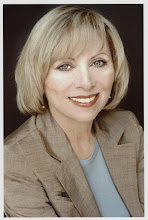Trade-Offs--How We Cope and Often Prosper
I have been waking up lately with a gnawing feeling that something is missing--kind of an empty feeling--an emotional ache that just won't quit. I finally realized that it's spring which is not as obvious to the senses in
We have had the pleasure of living in two wonderful worlds until last fall when we decided to sell our lovely French home as it was timely and financially fortuitous. The angst of that decision was that while we gained financially, we lost a great deal emotionally.
In my work as a psychologist helping others understand their attitudes and feelings about money and what they do with money as a result, it made perfect sense to me why we were feeling as we were and how to get through it so we did the right thing financially for ourselves.
Psychologists have identified a phenomenon known as “cognitive dissonance” that helps to explain what people do and experience in making difficult choices. Your brain doesn’t like dissonance, so it does what it has to do to resolve it. In some cases, people make the decision with a lot of reflection and make peace with the choice; others impulsively take action to rid themselves of the angst of the dissonance or conflict while others may not take action at all putting it off so they don’t have to deal with it at the moment. In other words, you protect yourself from feeling any anxiety or discomfort from inconsistencies between any beliefs you have and any actions you take.
In my work, I’ve seen the powerful impact of this phenomenon in explaining why some people say one thing and do another like taking risk when they say they can’t tolerate it; live way beyond their means while they financially can’t afford to do so; spoil their children and give them a false sense of entitlement because they don’t want to discipline them. In other words, they don’t walk their talk and live the life they say they really want to live or behave in a way that reflects what they say they want and value.
These tough economic times are a great opportunity to successfully deal with cognitive dissonance and learn that the defense mechanism of rationalization can be both friend and foe. It helps us in allowing ourselves to resolve conflicts, make the tough choices which may not give us as much immediate satisfaction but will pay off in the long-run. On the other hand, it certainly can sabotage us in allowing us to deny and rationalize why we don’t have to act and face feelings of discomfort.
So it goes in life, we are confronted with a series of compromises and making difficult choices. Being aware of and resolving both the emotional and financial issues involved with the choices, helps to assure that we won’t allow our defense mechanisms to sabotage what is ultimately in our best interest. Bottom line: To thine own self be true.


No comments:
Post a Comment